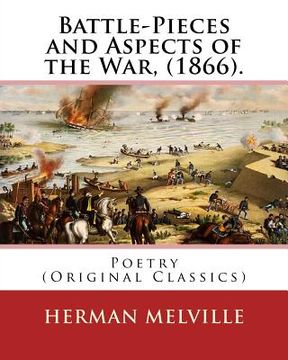Herman Melville (Nueva York, 1 de agosto de 1819-Nueva York, 28 de septiembre de 1891)1 fue un escritor, novelista, poeta y ensayista estadounidense, del período del Renacimiento estadounidense. Entre sus novelas más conocidas están Taipi (1846), basada en sus experiencias en la Polinesia, y la novela Moby Dick (1851),1 considerada su obra maestra y un clásico de la literatura universal.
Entre 1853 y 1855, publicó en la revista Putnam Magazine una serie de relatos, reunidos la mayor parte de ellos en The Piazza Tales, entre los que se encuentran dos de las narraciones más importantes de Melville: el cuento Bartleby, el escribiente y la novela corta Benito Cereno. También aparece el relato Las encantadas, compuesto de diez bocetos sobre las islas Galápagos unidos por un solo narrador. En 1857, El estafador y sus disfraces, también conocido como El embaucador (The Confidence-Man), fue el último trabajo de ficción en prosa que publicó. Buscando estabilidad económica, abandonó el oficio de escritor, aceptando un puesto como inspector de aduanas.
En sus últimos años, en los que tuvo que padecer además de la muerte de dos de sus hermanos también la muerte de dos de sus hijos, Clarence, por tuberculosis y Malcolm por un posible suicidio, además de la muerte de otro de sus hijos a los treinta y cinco años, Stanwix Melville, se dedicó a escribir poesía. Battle-Pieces and Aspects of the War, de 1866, es una reflexión poética sobre la Guerra de Secesión y Clarel: A Poem and Pilgrimage in the Holy Land, un poema épico de ficción, publicado en 1876. La novela Billy Budd, que dejó inconclusa y fue publicada póstumamente en Londres en 1924, es considerada una de las obras de mayor relevancia de la literatura estadounidense.
Ver más
Ver menos

